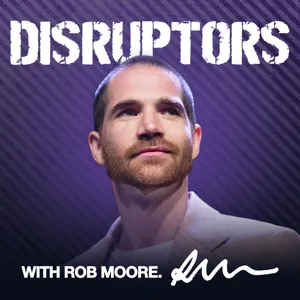Podcast Summary
Constant distractions from digital tools leading to anxiety and lack of trust: Employers and employees must effectively manage digital tools to prevent distractions and maintain productivity.
While digital communication tools like email, Slack, Zoom, and Teams are meant to increase productivity, they can instead create overwhelming distractions and anxiety for employees. Susan Hoy, a small business owner in Nevada, shared her experience of feeling overwhelmed by the constant pings and emails, leading to anxiety and a lack of trust among her team. The average worker receives approximately 120 emails a day, and the adjustment to remote and hybrid work has added to this burden. These tools were designed to manage time, but they've created additional tasks, leading to feelings of being constantly connected and unable to disconnect. Employers and employees must find ways to effectively manage these tools to prevent them from hindering productivity rather than enhancing it.
Effective Communication in Remote Workplaces: Batch Updates and No-Email Policies: To improve communication in remote workplaces, make lists, batch updates, consider no-email policies for internal communications, and use chat platforms instead of constant pinging.
Effective communication in the modern workplace, particularly during remote work, can be a challenge due to the constant pinging and information overload. This can lead to over-communication and a lack of focus. To cut through the noise, productivity consultants suggest making lists and batching updates instead of constant pinging. Another approach is implementing a no-email policy for internal communications and using chat platforms instead. A radical solution, as seen with one Nevada business owner, is a complete ban on internal emails except for important approvals. Ultimately, it's essential to take control of how we communicate and use technology to be more productive and reduce anxiety.
Managing Communication Overload: Strategies from Journalism Professionals: Journalism professionals shared their tips for managing communication overload, including waiting before responding to emails, muting and unmute Slack channels, and prioritizing communications for increased productivity and focus.
Effective communication management is crucial for professionals, especially for those in journalism or similar fields with high volumes of emails and messages. Kristen Schwab from Marketplace shared her strategy of waiting before responding to emails to create expectation and manage her inbox. She also mutes and unmutes Slack channels based on her work needs. On the other hand, Matt Levin, the host of the podcast, admitted to being an "inbox 0 person," but often marks emails as read without fully attending to them. They both agreed that dealing with a multitude of communications can be challenging, and suggested checking out Cal Newport, a professor who writes about managing digital distractions in the workplace. In a lighter note, they also introduced Million Bazillion, a podcast from Marketplace designed to answer kids' complex questions about money. Overall, the discussion emphasized the importance of prioritizing and managing communications to increase productivity and focus.
Help kids understand money with '1,000,000 Bazillion' podcast: Engaging podcast for kids to learn about money, fosters conversations, and sets foundation for future financial literacy
It's essential to help our kids understand the role money plays in the world around us. Listening to the podcast "1,000,000 Bazillion" is a great resource for doing just that. This podcast provides valuable insights into the intricacies of money and finance in a way that's accessible and engaging for kids. By tuning in, we can help our children develop a solid foundation for making informed financial decisions in the future. Additionally, the podcast offers opportunities for parents and kids to have meaningful conversations about money, allowing us to demystify this complex topic and instill important values around saving, spending, and giving. So, whether you're a parent looking to start the conversation about money with your kids or just someone who wants to deepen their own understanding of financial concepts, "1,000,000 Bazillion" is a must-listen.






